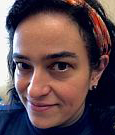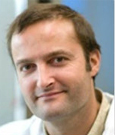
Freddy Frischknecht
Heidelberg University Hospital
Germany
EMBL Conference
Malaria remains one of the most significant global public health challenges, with more than 300 million clinical cases worldwide each year. The lack of an effective licensed vaccine and the continual emergence of drug-resistant malaria parasites make the search for new control and prevention strategies more important than ever. Malaria research is a highly collaborative field that depends on the contribution of unique resources, technologies and biological advances. Accessible and timely sharing of these advances through the establishment of new collaborations is vital for their translation into public health impact.
This conference will address fundamental questions of the biology of the malaria parasite, its vector, the (immune) response of the host and the disease that it causes, and will showcase the latest technological approaches. The use of “big data” and computational approaches to tackle fundamental biological questions will be assessed. This will be the 14th BioMalPar conference at EMBL Heidelberg. The conference series has built on the success of the EU funded Networks of Excellence EviMalaR and BioMalPar and, for more than a decade, has brought together malaria researchers from Europe with their colleagues and collaborators from around the world, to present and share recent ground-breaking findings on fundamental malaria research in an integrated and highly collaborative environment.
The conference is of interest to all academics researching malaria and addresses fundamental questions on the biology of Plasmodium parasites. In keeping with the traditions of BioMalPar and EviMalaR, with emphasis on training and networking, the meeting will focus on allowing speaking opportunities for early stage researchers. Interactions with international leaders will be encouraged through two dynamic poster sessions, “meet the investigator” discussion panels and numerous networking opportunities, to foster the development of new collaborations worldwide.

Heidelberg University Hospital
Germany

University of Georgia
USA

Institute of Molecular Medicine
Portugal

Broad Institute
USA

The Rockefeller University
USA

German Cancer Research Center (DKFZ)
Germany

University of Pennsylvania
USA

Institute for Molecular and Cellular Biology (IBMC)
France

University of Glasgow
UK

Bernhard Nocht Institute for Tropical Medicine
Germany

German Cancer Research Center (DKFZ)
Germany

EMBL Heidelberg
Germany
Date: 23 - 25 May 2018
Location: EMBL Heidelberg